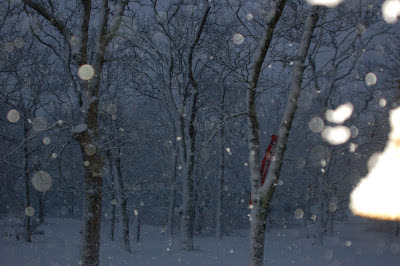
The Union of Concerned Scientists has explained what they can confidently assert about storms like the one that buried the Northeast last week and the more general phenomenon of human-induced climate shifts. It's a lot.
It's up to the people to make the pols make better choices.What is the relationship between weather and climate?
Weather is what’s happening outside the door right now; today a snowstorm or a thunderstorm is approaching. Climate, on the other hand, is the pattern of weather measured over decades.
NASA and NOAA plus research centers around the world track the global average temperature, and all conclude that Earth is warming. In fact, the past decade has been found to be the hottest since scientists started recording reliable data in the 1880s. These rising temperatures are caused primarily by an increase of heat-trapping emissions in the atmosphere created when we burn coal, oil, and gas to generate electricity, drive our cars, and fuel our businesses.
Hotter air around the globe causes more moisture to be held in the air than in prior seasons. When storms occur, this added moisture can fuel heavier precipitation in the form of more intense rain or snow.
At the same time, because less of a region’s precipitation is falling in light storms and more of it in heavy storms, the risks of drought and wildfire are also greater. Ironically, higher air temperatures tend to produce intense drought periods punctuated by heavy floods, often in the same region.
These kinds of disasters may become a normal pattern in our everyday weather as levels of heat-trapping gases in the atmosphere continue to rise. ...
Overall, it’s warming, but we still have cold winter weather.
The seasons we experience are a result of the Earth’s tilted axis as it revolves around the Sun. During the North American winter, our hemisphere is tilted away from the Sun and its light hits us at a different angle, making temperatures lower.
While climate change won’t have any impact on Earth’s tilt, it is significantly shifting temperatures and causing spring weather to arrive earlier than it used to. Overall, spring weather arrives 10 days earlier than it used to, on average. …
Winters have generally been warming faster than other seasons in the United States and recent research indicates that climate change is disrupting the Arctic and ice around the North Pole. … It’s not clear how much impact this trend will have in the future, especially as the Arctic ice continues to lose mass. ...
It’s not too late.
The choices we make today can help determine what our climate will be like in the future. Putting a limit on heat-trapping emissions, encouraging the use of healthier, cleaner energy technologies, and increasing our energy efficiency are all ways to help us to avert the worst potential consequences of global warming, no matter what the season.
Despite every other legitimate concern, we cannot ignore that our economic and social system is rapidly making the planet less habitable. So I will be posting "Warming Wednesdays" -- reminders of an inconvenient truth.
No comments:
Post a Comment